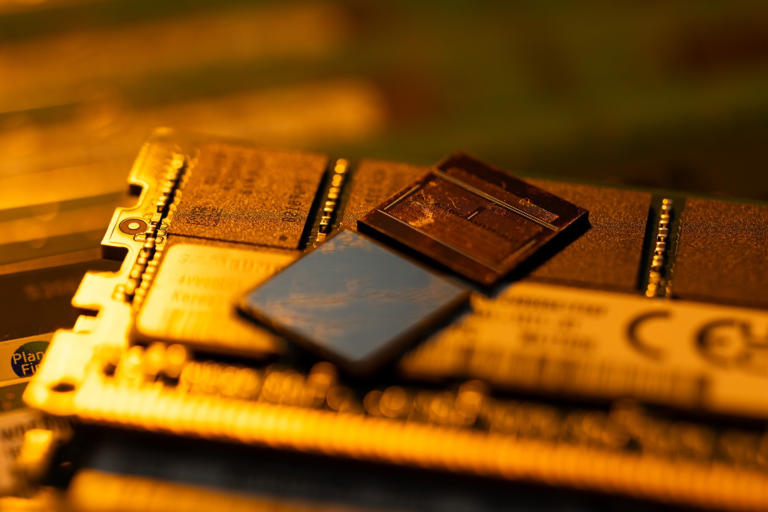
Samsung Electronics Co. has announced the replacement of the head of its semiconductor arm in an effort to catch up with rival SK Hynix Inc. in the rapidly growing field of artificial intelligence (AI). Jun Young Hyun, a veteran in the memory chip industry, has been appointed as the new leader of Samsung’s crucial business line. He takes over from Kyung Kye-hyun, who will now be heading Samsung’s Advanced Institute of Technology and the future business team. Jun, who has been with the company since 2000, has played a significant role in the development of DRAM and flash memory chips for smartphones and servers. The decision to replace Kyung came after he offered to step down, according to an anonymous source. Samsung is currently lagging behind SK Hynix in the production of high-bandwidth memory (HBM) chips, which are in high demand for training AI models like ChatGPT.
According to Sanjeev Rana, an analyst at CLSA Securities Korea, it is uncommon for Samsung to make a management change in the middle of the year. This decision reflects Samsung’s urgent need to bring new energy and fresh thinking into its semiconductor business, which has been losing its leading position.
Investors are growing increasingly worried about Samsung’s response to its smaller competitor, which has recently reported its fastest revenue growth since at least 2010. As a result, SK Hynix’s stock has surged by 36% since the beginning of 2024, significantly outperforming Samsung’s stock, which has remained relatively stable.
The stock market initially had a muted reaction on Tuesday. Samsung’s shares experienced a slight decline after the announcement, dropping by less than 1%. On the other hand, SK Hynix’s stock rose by 1.1%.
SK Hynix is the largest supplier of memory chips used in the development of ChatGPT-like services worldwide. Its production capacity for such chips is almost fully booked through next year.
To meet the growing demand for HBM chips in AI platforms, Samsung is planning to invest approximately $14.6 billion in constructing a new complex in South Korea. This complex will work in conjunction with Nvidia Corp. accelerators. Additionally, Samsung is building its first $4 billion packaging facility in Indiana, USA.
Furthermore, Samsung is undergoing a global expansion, with a $40 billion investment in US chipmaking. Despite its ventures in logic chips and the foundry business, Samsung has faced challenges in securing major clients and competing with Taiwan Semiconductor Manufacturing Co., which leads in advanced chip production.
Jun’s appointment as an executive at Samsung is noteworthy as it is uncommon for executives to be appointed at his age. According to CLSA’s Rana, Jun’s expertise is crucial in helping Samsung navigate the current challenging landscape.
Samsung has commenced large-scale production of its newest high-bandwidth memory (HBM) product, the eight-layer HBM3E. Additionally, the company has announced its intention to begin mass production of 12-layer HBM chips in the second quarter. Samsung anticipates that its HBM supply will grow by a minimum of threefold in 2024 compared to the previous year.